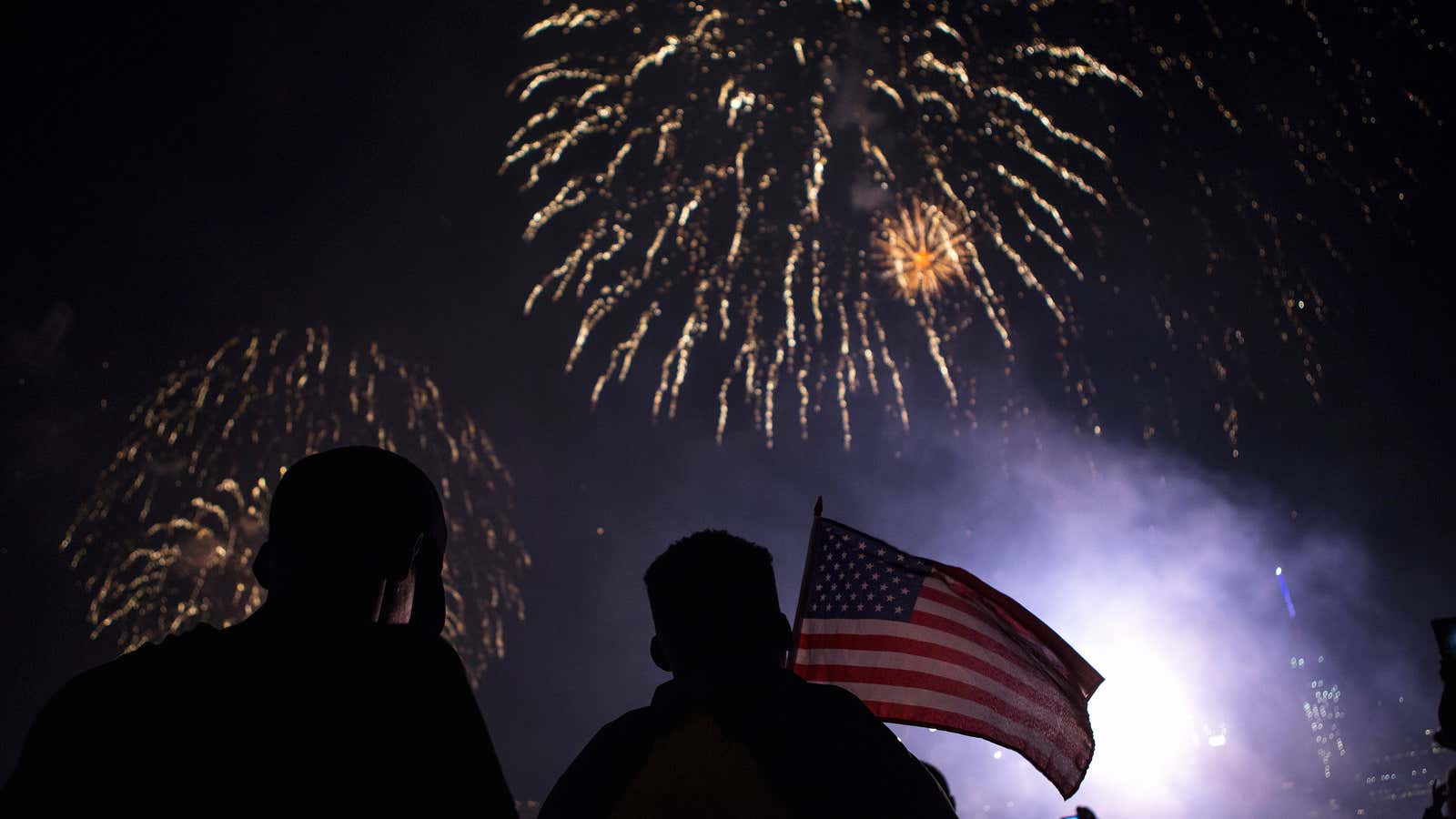A report of a gunshots this morning in Washington DC’s Navy Yard, the location of a deadly shooting in 2013, put the US capital on high alert for what turned out to be a false alarm—called in by an employee who mistook a loud noise for gunfire.
The incident, coming just before the US Independence Day holiday and its traditional barrage of fireworks—serves as a reminder that people who have experienced trauma can be especially susceptible to noisy July 4 celebrations. That’s particularly true for some US military veterans: their service is often honored on the holiday, and yet it is very difficult for some.
Last year, a widely-circulated Facebook post featured Iraq War veteran Jon Dykes, diagnosed with post-traumatic stress disorder after returning home in 2003, standing behind a sign that asked his neighbors to be courteous during their celebrations. Dykes, who was medically discharged in 2010 for PTSD and physical injuries, says that July 4 fireworks brought back the feeling of being under attack and left him exhausted, as he says on the website for a campaign his post inspired. “Explosion of Kindness” aims to raise awareness about the effects of fireworks on veterans with PTSD.
Dykes doesn’t ask people to forego fireworks altogether, but to limit their use:
“Courteous to me means remembering that you are not the only one living in your neighborhood/town/city. America celebrates our independence on the 4th of July. Not the 1st, 2nd, 3rd, 5th, 6th, and 7th of July. Some fireworks are expected, and that’s okay. I understand. But, not 24 hours a day.”
The US Department of Veterans Affairs estimates that between 11-20% of veterans who served in Iraq and Afghanistan suffer from PTSD.
This year, the group Military with PTSD, which is behind the “Explosion of Kindness” campaign, sent out 2,500 signs modeled after the one Dykes created.
The American Pyrotechnics Association predicts skyrocketing sales this firework season, and estimated that last year cities and towns across the country put on 15,000 displays.
